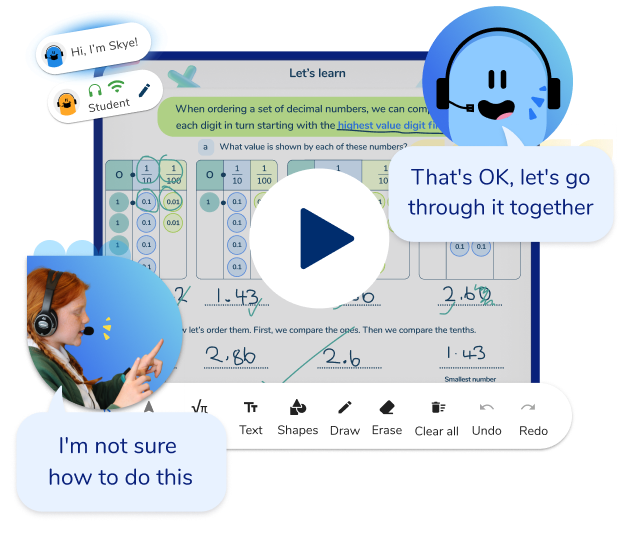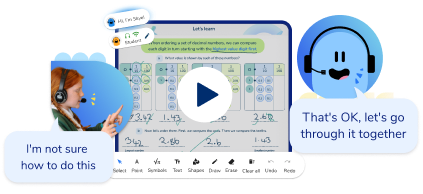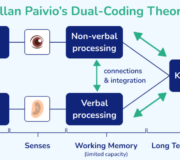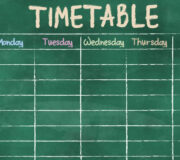Maths CPD For Primary Teachers: How You Can Learn, Progress And Grow At Little Cost
Providing maths CPD courses (Continuing Professional Development) for your staff ensures that all students have access to high-quality mathematics education. Professional development of maths helps teachers, particularly non-specialist maths teachers improve their subject knowledge and teaching practices which helps improve student outcomes.
While high-quality professional development for maths teachers is often expensive. Here, we aim to provide you with CPD courses that improve subject knowledge and pedagogy and support teachers in both primary and secondary settings at little to no cost.
Access to CPD courses
All staff members should have access to a full range of professional development opportunities to help them develop educators and support staff.
However, research by the Teacher Development Trust (TDT) found over 21,000 employed teachers reported zero or near-zero CPD budget.
Additionally, the research found that schools rated ‘Inadequate’ by Ofsted spend around 20% less on CPD than other schools, as a proportion of their total budget.
On average, secondary settings spent 0.37% of their budgets on staff training and primary settings spent 0.65%.
With a lack of funding available to develop maths teaching, it is time to alter our approach to CPD.
Maths CPD solutions
DIY CPD
Schools have a responsibility to develop their staff. But educators can also take CPD into their own hands. but this isn’t a one-way process. There is a whole host of CPD available within the teaching community too.
Here’s a list of CPD to develop your own core maths skills and mathematical thinking to better support learners.
Conferences
National conferences are a great source of CPD. But there are still additional costs such as:
Tickets;
Travel;
Food and drinks;
Accommodation.
Take advantage of early bird rates to enhance understanding and make the most of networking opportunities at national conferences.
Examples of some conferences that offer the right balance of affordability and quality are:
Primary Rocks
Southern Rocks
Northern Rocks
researchEd
breweEd
Of course, this is not an extensive list. To keep up with conferences take a look at Eventbright and Future Learn.
Extended courses
Some national conferences run for multiple days and offer great insights to motivate learners when you return to the classroom.
While they can be more expensive than smaller local conferences, they can be good value given the sessions on offer and the networking opportunities you can throw yourself into.
If you make a good case for attending, your school may agree to pay. The Mathematical Association have produced some helpful information including an editable justification letter that you can present to your Head.
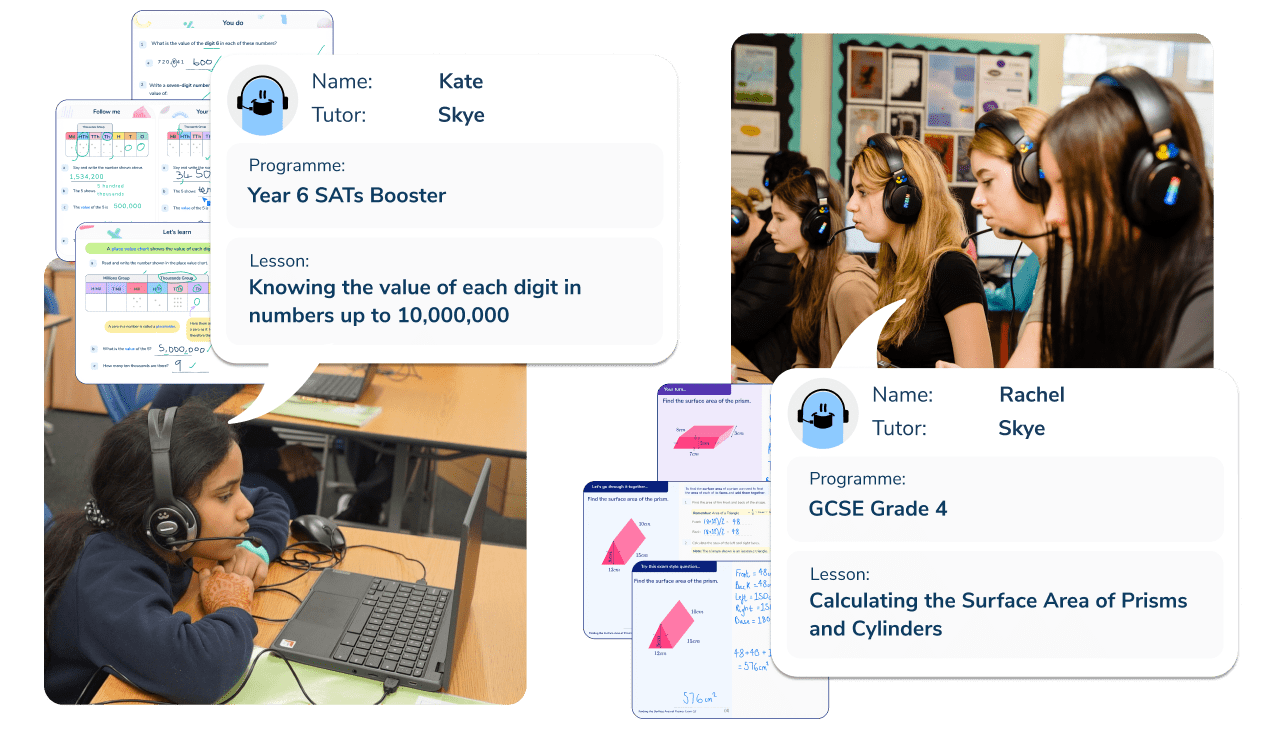
Meet Skye, the voice-based AI tutor making maths success possible for every student.
Built by teachers and maths experts, Skye uses the same pedagogy, curriculum and lesson structure as our traditional tutoring.
But, with more flexibility and a lower cost, schools can scale online maths tutoring to support every student who needs it.
Watch Skye in actionContribute your knowledge
Conferences often invite participants to offer workshops at their events. This can be a really rewarding part of CPD that benefits both you and the conference as a whole.
I remember presenting my first sessions at ATM and MA conferences on “Concept Cartoons in Maths” and “Formative Assessment in Maths.” This fine-tuned my thinking and practice in so many ways.
By offering sessions you end up in a CPD cycle of win-win.
Not only are you making your own CPD and improving your own teaching, you are positively impacting others. Don’t worry about messing up either – subject specific delegates are on your side and are there to support you.
Preparing presentations to your peers involves:
Time and effort;
Plenty of research;
Reading and revision,
Data collection.
It keeps you current, channels your mind on what’s important, reminds you of best practice and helps future improvements.
This can all be done at little or no cost, and is a fantastic way to do some DIY CPD!
Teach meets
Sharing ideas with other mathematics teachers at teach meets is a powerful CPD strategy when acted upon.
How to run a teach meet:
Set a date and arrange a venue – likely a school of one of the attendees
Listen to short presentations from each other’s best practices
Discuss ideas and learn from each other
Return to your classroom the next day and start putting best practices into action
These are very informal events and can be a great way of earning your maths spurs in a safe and supportive environments.
Not all attending have to pitch or present, simply come along and listen.
Some teachers say that teach meets are some of the best CPD they ever experience because they are short, sharp, snappy and sociable.
Video CPD
The internet is full of CPD resources. Most of which are either free or very cheap.
Videos are some of the best CPD. They are essentially like teach meets but you watch someone present or share their best teaching practices over video rather than in-person.
Third Space Learning’s Maths Hub hosts a library of free maths CPD video available on demand. Simply create a free Maths Hub account to access over 150 masterclasses and video CPD for teaching the Years 1-6 curriculum.
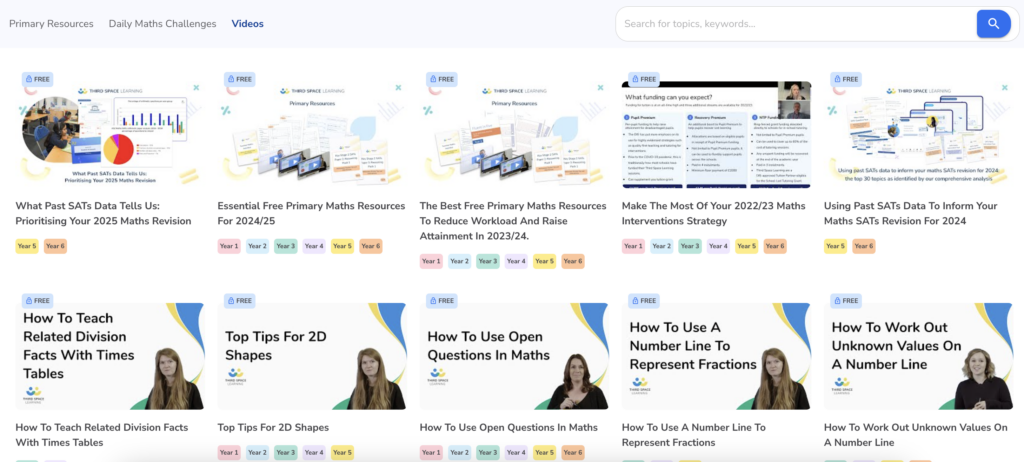
Some of the video content you will be able to find in the Maths Hub includes:
- Using Past SATs Data To Priorotise Maths Revison
How to Turn Maths Progress Around in Your School Using Mental Maths
Downloadable resources
If videos aren’t your preferred learning strategy, you may find reading leads to a deeper understanding of the latest mathematical pedagogies.
The maths experts at Third Space Learning have created a wealth of CPD reading material to help educators improve maths lessons and develop teaching tooklits for Key Stage 1-4.
These are available in the Secondary Resource Library to help with teaching GCSE mathematics and at KS3. For teaching mathematics to primary aged students, these CPD guides can be found in the Maths Hub.
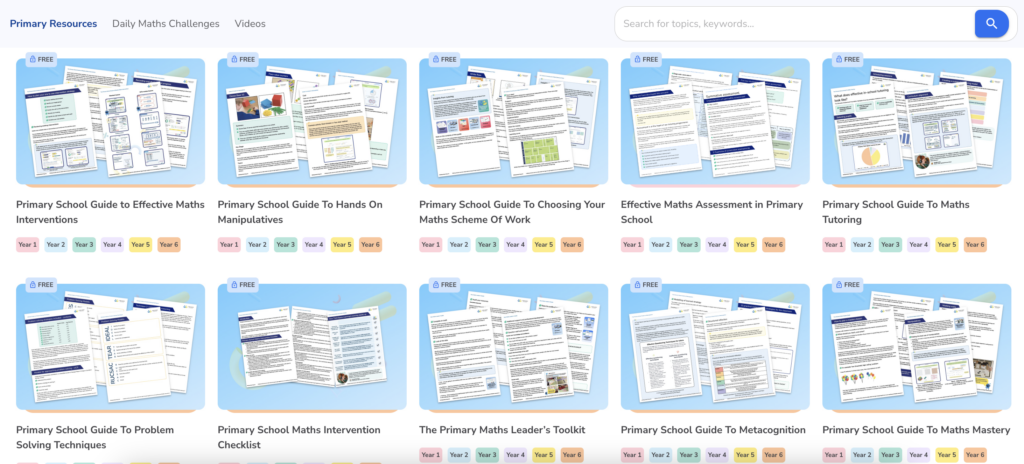
Alongside the CPD guides, there are 100’s of secondary maths resources available for GCSE mathematics, including those resitting GCSE mathematics.
GCSE mathematics resources include:
GCSE practice papers to build confidence and familiarity
GCSE revision guides to help reach target grades
Primary mathematics resources include:
Fluent in Five to build functional skills
Rapid Reasoning to develop reasoning techniques
Ready-to-go-Lessons that can be adapted to suit your learners
SATs practice papers and questions to build confidence and familiarity
While many primary resources are free in the Maths Hub, find out how you can access the full range of premium resources included with one to one tutoring or as a whole-school subscription.
In School CPD
Presenting a training session in-house has similar benefits as presenting at a conference. Actively seek it and everyone reaps CPD rewards.
If you are a specialist maths teacher or subject leader, you’ll be doing this anyway. If not, team up with the maths coordinator and co-present to your colleagues on a hot topic, latest idea or initiative.
This doesn’t have to be formal and an hour long – it might just be a few minutes as part of a staff meeting or dedicated training day.
The point is to squeeze in some in school CPD as and when you can, as the rewards of simply sharing the knowledge that already exists within your school will prove invaluable!
If you are on the lookout for free CPD, this is a great place to start.
Staffroom
Although a place of relaxation, staffroom culture has changed over the years and these are working environments that can be used to share ideas and promote initiatives.
Some staffrooms have ideas boards where staff can post ‘golden nuggets’ for others to see. These might be links to a new resource, a website, an idea or strategy.
You might only make it to the staffroom for a few minutes, but maximise these learning spaces where just a single conversation with a colleague can change the way you do things.
Never underestimate the power of a good natter and staffrooms are just one way of harnessing the power of sharing – why not walk and talk at lunchtime if you aren’t able to stop in the staffroom and get some much-needed fresh air, exercise and CPD.
Subject associations
Subject associations can offer you so much and they are a valuable component in professional development.
They enable you to be part of a subject community and keep you up to date in your subject. You get access to dedicated resources and expertise, and you can pursue your learning.
Membership is a professional way of life, a sense of community, support and a goldmine of development.
I strongly urge you to join a maths association because the CPD on offer through a subject-dedicated organisation is enormous.
Joining up comes at a price but there are ways to join that can cut the cost dramatically. Individual membership is one way to do it and a personal membership subscription is tax deductible, making it more value for money.
Another route is to opt for school membership or better still, as a cluster and you’ll make even greater savings.
Memberships often include CPD in the form of:
Copies of a specialist maths magazine or journal;
Discounts at conferences;
Electronic access to literally thousands of articles;
Members-only resources;
Professional support and enrichment;
Regular newsletters and news briefings containing all the latest keeping you in the loop;
A network of local branches offering regular meetings;
Accreditation – in the case of the ATM, members can apply for the CMaths Teach Designation making membership the route to Chartered Mathematics Teaching status;
Vote on resolutions, have a voice and be heard so you can shape the direction of the organisation and subject;
The opportunity to work in small groups investigating specific aspects of mathematics or teaching.
Membership is worth every penny, so remember to look out for joining offers too where organisations give away free books or e-book packs.
Maths Hubs
Not to be confused with the Third Space Learning Maths Hub, belonging to a Maths Hub is a great way of developing your teaching techniques.
35 Hubs across the country work together as part of a collaborative network coordinated by the National Centre for Excellence in the Teaching of Mathematics (NCETM). The NCTEM is a rich source of maths CPD.
Maths Hubs bring together professionals from and are brilliant examples of living and breathing maths partnerships.
Their purpose is to build capacity and they connect with a range of partners including Teaching Schools; mathematics Specialist Leaders of Education (SLEs); NCETM CPD Standard holders; NCETM accredited Professional Development Leads; universities; subject associations; and employers.
Outstanding graded schools lead local Hubs to develop and spread best practice. The great thing about being involved in a Maths Hub is that you get access to free or subsidised CPD programmes, the chance to keep your finger on the pulse about local maths initiatives and to participate in a network of local leaders of maths education (LLME).
Find your local Maths Hub.
Professional bodies
Access professional development bodies websites and for excellent knowledge and wisdom:
NCETM: You’ll find self-evaluation tools to check your maths understanding and techniques to develop your practice.
Chartered College of Teaching : Discover insights on teacher and school evidence-engagement and self-assessment toolkits.
The Teacher Development Trust: Founded in 2012 by David Weston and Mark McCourt, this is a fantastic place for CPD. The pair also wrote the seminal document on good CPD.
Professional bodies providing cheap or free Maths CPD:
Adults Learning Mathematics
Association of Mathematics Education Teachers
British Society for Research into Learning Mathematics
British Society for the History of Mathematics
Conference of Heads of Departments of Mathematical Sciences
Institute of Mathematics and its Applications
The Mathematical Association
Mathematics in Education and Industry
National Association for Numeracy and Mathematics in Colleges
National Association of Mathematics Advisers
National Numeracy
NRICH (on behalf of the Millennium Mathematics Project)
Operational Research Society
Royal Academy of Engineering
Royal Statistical Society
STEM Learning
United Kingdom Mathematics Trust
Wales Institute of Mathematical and Computational Sciences
Programmes of study
Studying for a Masters is expensive, but you don’t have to go down this route.
You could study online and take some free courses.
There are lots available through many of the organisations above or companies such as Future Learn. YOu may also want to check out the short, online professional development courses that STEM have to offer online as there is a lot here that is very useful.
More maths CPD examples
What else can you do day to day, weekly or monthly that counts as CPD?
It’s easy to overlook the obvious but there are plenty of things you can do to grow and accelerate your CPD and the majority of opportunities don’t even involve leaving the house or spending money.
Podcasts
For CPD on the go, teaching podcasts are great. Plenty of colleagues I know listen to these when out on a run, taking the dog for a walk, driving, etc.
I use them as a ‘learning walk’ and plug into those that are devoted to evidence-based practice and learning and of course maths.
Some great CPD podacsts include:
Head over to TES Podagogy
Learning Scientists
NCETM podcast
Kelly Long’s Inspiration 4 Teachers Podcast
Craig Barton’s maths podcast
Two P’s In A Pod With Mr P
Pivotal Podcast
Podcasts are full of insights, professional challenges and creative resolutions that help you think differently and grow as a teacher. They are another fantastic source of free CPD for teachers.
Social media
Social media has changed the way teachers engage with CPD.
Never has it been so easy to tap into expertise, research, thinking, policy, strategy and opinions.
Platforms such as X (formerly Twitter) in particular have become the go-to to informally connect with educators from around the world. They can be a fantastic source of online CPD for teachers.
You can find a hashtag for whatever your specialism is. If you’re a primary teacher #primaryrocks is a treasure trove of teaching ideas. For senior leaders #SLTchat is a doorway into professional development. Those in international education look no further than #SuperbSchools a monthly twitter chat that is led by John McCance (@AlbaMcCance) and is a fantastic monthly event for international school teachers with guest including the likes of Daisy Christodoulou.
Some teachers make it their mission to access and interact with social media multiple times a day and post thoughts, experiences and questions as well as share ideas, pick up tips and promote strategies.
In their brilliant book What Connected Educators Do Differently, Whittaker, Casasas and Zoul (2015) offer plenty of advice for using Twitter as a positive and powerful vehicle for CPD.
They talk about the importance of starting and cultivating a professional or personal learning network (PLN) and Twitter plays a big part in this.
Investing time in following a range of educators and investing time contributing meaningfully yourself is CPD for free.
Blogging
Writing about your subject passions used to be quite hard work for most teachers as only a select few would get slots in newspapers and magazines. But this isn’t the case anymore.
Today, the website is open to teachers and welcomes new writers to share their thoughts, opinions and feelings.
It’s commonplace now for teachers to blog for places like Third Space Learning. Many have used it to sharpen their thinking, develop their ideas and grow their profiles.
Teaching blogs have become a source of inspiration, guidance, and support for those dedicated to shaping the future of education.
Some teachers have even become ‘celebrity teachers’ as a result of their edu-blogging and regularly get invited to conferences to speak. Writing in itself is a CPD win-win because you are continually feeding your own development and possibly influencing others in the process.
Many have their own personal websites and blogging sites where they can explore their own thinking and share with others, and these are valuable opportunities to grow as a professional, polish your craft, feed your brain and expand your development.
Writing articles for professional journals is also something you could consider – the content requirements and protocols tend to be much tighter and more stringent but this is a different type of writing that can push you to develop in new ways.
TED talks and videos
If you are looking to be inspired by some great teachers, take a look at some brilliant TED Talks. Sir Ken Robinson’s creativity talk has over 50 million views. He also picks his top ten and there is plenty more inspiration here.
More free CPD can be found via the old Teachers TV. There are 3,500 videos with plenty of ‘still relevant’ maths ones to learn from.
Try not to become overwhelmed
The volume of CPD available to you is enormous and this doesn’t have to cost much if anything at all.
Select what works for you and don’t attempt to do everything because you won’t have the time.
Focus on what interests you, focus on what impact it can make in your classroom and school and focus on enjoyment.
Dipping in and out of CPD is what works for many teachers as it can fit around all your other commitments, so customise to suit your own needs.
If you are a senior leader then complete the online CPD audit via TDT for a “temperature check” of your own CPD.
With so many CPD opportunities that can feed into your professional development record there really is no excuse for a professional development drought.
The bottom line is don’t go busting your budget on expensive CPD workshops – they aren’t the be-all and end-all, especially when there is so much free CPD staring you in the face!
DO YOU HAVE STUDENTS WHO NEED MORE SUPPORT IN MATHS?
Skye – our AI maths tutor built by teachers – gives students personalised one-to-one lessons that address learning gaps and build confidence.
Since 2013 we’ve taught over 2 million hours of maths lessons to more than 170,000 students to help them become fluent, able mathematicians.
Explore our AI maths tutoring or find out about maths intervention programmes for your school.
